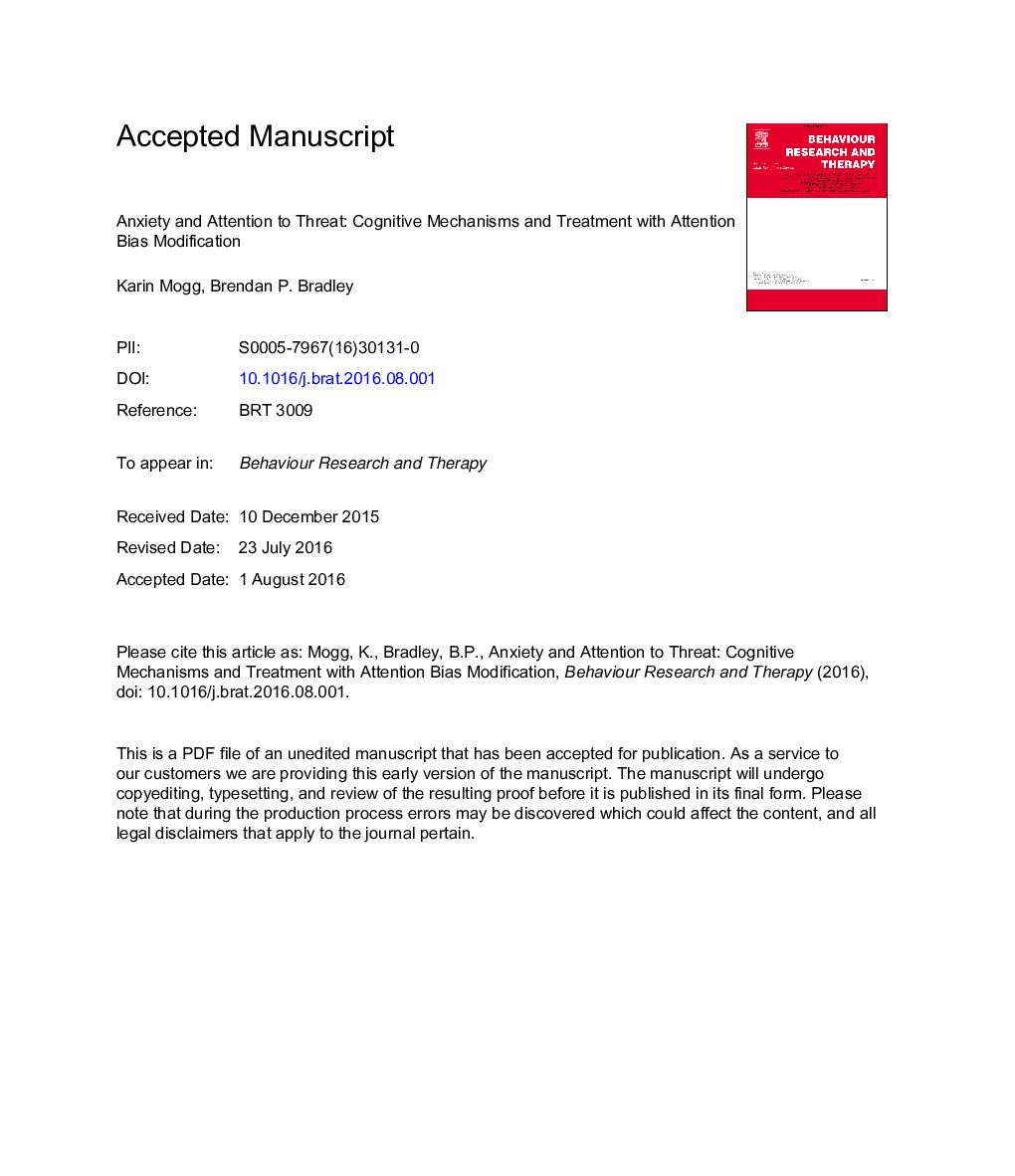| کد مقاله | کد نشریه | سال انتشار | مقاله انگلیسی | نسخه تمام متن |
|---|---|---|---|---|
| 7261991 | 1472762 | 2016 | 115 صفحه PDF | دانلود رایگان |
عنوان انگلیسی مقاله ISI
Anxiety and attention to threat: Cognitive mechanisms and treatment with attention bias modification
ترجمه فارسی عنوان
اضطراب و توجه به تهدید: مکانیزم های شناختی و درمان با اصلاح توجه بی توجهی
دانلود مقاله + سفارش ترجمه
دانلود مقاله ISI انگلیسی
رایگان برای ایرانیان
کلمات کلیدی
اضطراب، توجه تهدید، اصلاح تعصب توجه، کنترل شناختی،
موضوعات مرتبط
علوم پزشکی و سلامت
پزشکی و دندانپزشکی
روانپزشکی و بهداشت روانی
چکیده انگلیسی
Anxiety disorders are common and difficult to treat. Some cognitive models of anxiety propose that attention bias to threat causes and maintains anxiety. This view led to the development of a computer-delivered treatment: attention bias modification (ABM) which predominantly trains attention avoidance of threat. However, meta-analyses indicate disappointing effectiveness of ABM-threat-avoidance training in reducing anxiety. This article considers how ABM may be improved, based on a review of key ideas from models of anxiety, attention and cognitive control. These are combined into an integrative framework of cognitive functions which support automatic threat evaluation/detection and goal-directed thought and action, which reciprocally influence each other. It considers roles of bottom-up and top-down processes involved in threat-evaluation, orienting and inhibitory control in different manifestations of attention bias (initial orienting, attention maintenance, threat avoidance, threat-distractor interference) and different ABM methods (e.g., ABM-threat-avoidance, ABM-positive-search). The framework has implications for computer-delivered treatments for anxiety. ABM methods which encourage active goal-focused attention-search for positive/nonthreat information and flexible cognitive control across multiple processes (particularly inhibitory control, which supports a positive goal-engagement mode over processing of minor threat cues) may prove more effective in reducing anxiety than ABM-threat-avoidance training which targets a specific bias in spatial orienting to threat.
ناشر
Database: Elsevier - ScienceDirect (ساینس دایرکت)
Journal: Behaviour Research and Therapy - Volume 87, December 2016, Pages 76-108
Journal: Behaviour Research and Therapy - Volume 87, December 2016, Pages 76-108
نویسندگان
Karin Mogg, Brendan P. Bradley,
